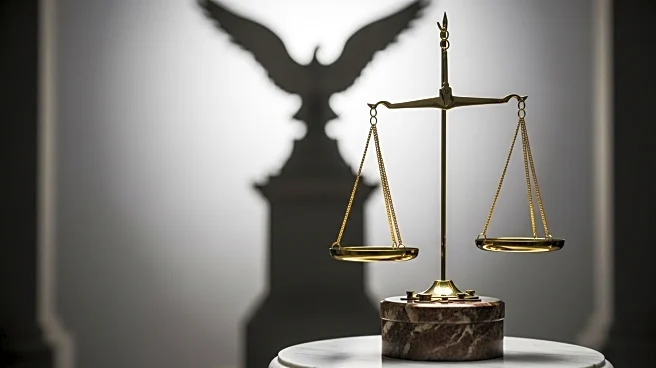What is the story about?
What's Happening?
Federal judges have issued multiple rulings against the Trump administration, criticizing its attempts to limit First Amendment rights. These rulings involve cases where the administration targeted speech from elite law firms, news organizations, and unions. Judges have rebuked the administration for actions perceived as retaliatory against entities opposing its policies. Notable cases include Harvard University's successful challenge to the freezing of federal research funds and rulings against executive orders targeting law firms. The administration's approach has been seen as an effort to intimidate rather than pursue winning legal arguments.
Why It's Important?
The judicial pushback against the Trump administration's First Amendment actions underscores the ongoing tension between executive power and constitutional rights. These rulings highlight the judiciary's role in safeguarding free speech and preventing government overreach. The administration's attempts to limit speech have raised concerns about the erosion of democratic principles and the chilling effect on dissenting voices. The broader implications for public policy and civil liberties are significant, as these cases set precedents for future challenges to executive actions.
What's Next?
The administration's willingness to appeal unfavorable rulings suggests continued legal battles over First Amendment issues. These cases may eventually reach the Supreme Court, where their outcomes could have lasting impacts on free speech protections. As the administration pursues its agenda, stakeholders, including legal experts and civil rights organizations, are likely to advocate for robust First Amendment safeguards. The ongoing judicial scrutiny of executive actions will play a crucial role in shaping the balance between government authority and individual rights.
Beyond the Headlines
The administration's focus on retaliatory actions against perceived political enemies raises ethical and legal questions about the use of executive power. The emphasis on curtailing speech through intimidation rather than legal victories reflects broader concerns about the administration's approach to governance. These developments highlight the importance of maintaining judicial independence and upholding constitutional principles in the face of political pressure. The long-term implications for democratic institutions and civil liberties underscore the need for vigilance in protecting free speech.















